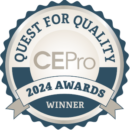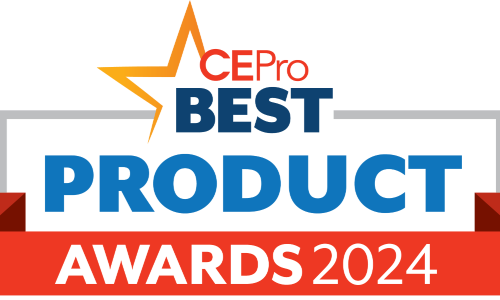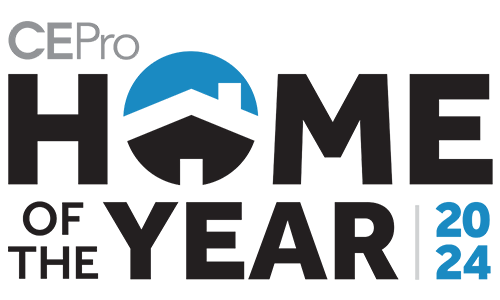There is no arguing that referrals are the lifeblood of the custom installation industry. Integrators work hard to satisfy their clients, builders, architects, interior designers and other trades to the utmost degree in order to build their reputation and garner those coveted referrals. But one key trade partner tends to be overlooked by many dealers: real estate agents.
“There is actually not a whole lot of interaction between real estate agents and custom integrators right now,” admits Angel Piontek, director of business development for the Fredericksburg, Va., office of Coldwell Banker Elite, a large nationwide Realtor. “I have met with custom integrators some times when I am representing a person who is building a new home. The relationship typically all takes place through the builder.”
But Piontek sees that situation changing. “With home technology becoming more ubiquitous, I foresee the relationship between a custom integrator and a real estate agent evolving to be comparable to the type of relationship that Realtors currently have with home inspectors or lenders. These are professionals that Realtors refer to on a regular basis.”
She continues, “Agents and integrators need to have a partnership. That’s why I think education of agents is critical. With the increased consumer adoption rates for smart home technology, it’s just a natural progression for Realtors and integrators to forge partnerships.”
To help kickstart that educational process, Coldwell Banker recently launched the Smart Home Staging Kit. The kit includes a Nest thermostat, Nest Protect smoke and carbon dioxide alarm, August Smart Lock, August Connect Bridge and Lutron Wireless Starter Kit. All the products are available online at www.smarthomestaging.com. There is an option for professional installation or the homeowner can install it on his or her own.
“It is a great start for someone who is interested in smart products. It brings awareness to agents and gets them education. The more people who can realize the benefits of smart home technology, the more willing they are to continue investing in it. It is the first of its kind,” says Piontek, who is based in Vienna, Va.
Lutron Electronics supports the strategy to educate real estate agents. It’s one of the reasons the company is part of the Smart Home Staging Kit. But Lutron’s efforts go well beyond that.
“We have created the Caséta Wireless smart home website and developed promotional tools to help builders tell the story of ‘Simple, Affordable, and Reliable.’ to their customers”, says David Weinstein, vice president of residential sales for Lutron Electronics. “Whether it be about our lighting control products, shading control products, our integration with complementary systems, or the opportunity to get started using a starter kit as an entry-level package. We are working to help define the business case for home technology. The opportunity to easily introduce technology is the No. 1 way to increase a home’s value, boost an integrator's cache with their client, and ultimately make smart home technology deployment a profitable venture.”
Weinstein adds, “Through our custom dealer website Techlivingpro.com, you can explore homeowner installations that utilize smart home technology to provide pleasance, enhance lifestyle, and positively impact a home’s value.”
The company is also touting its breakthrough efforts in expanding its connected home integration capabilities for not just the lighting and automated shade control it is known for, but new voice control and audio control enhancements. Lutron has aligned with top brands, including Sonos and Amazon Echo.
John Toscano, COO of AAMI, a custom integration and security company based in Naples, Fla., agrees. “It is important for the integrator to have a partnership with everybody, whether it is the Realtor, manufacturer, builder, designer, architect or the end user client. One of the previous shortfalls in the industry was that integrators just did the work, we didn’t really have partnerships.”
Why Realtors Are More Important Today
AAMI is a prime example of why real estate agents have become key partners. The company does about half of its business in the retrofit market, both remodels and complete teardowns, as well as gutted units in MDU high rises.
“We see a lot of remodeling in high rises; that is way up over the past 12 months,” he notes.

Research supports that trend. Existing home sales have been steadily rising since the recession, and remodeling activity continues to be on the rise with the Harvard Joint Centers for Housing Studies showing that in the last quarter, remodeling expenditures reached $320 million for the quarter, up nearly 8 percent. Meanwhile, according to a recent study of Realtors by Coldwell Banker reports:
- 33 percent of Realtors say high-tech homes sell faster.
- 64 percent of Realtors say homebuyers are more interested in high-tech amenities compared to two years ago.
- 60 percent of agents say the number of “smart home listings” has increased.
Similarly, a separate study from Coldwell Banker of consumers conducted with media company CNET reports:
- 54 percent of prospective home sellers would install smart home products to make it sell faster.
- Of that group, 65 percent would pay $1,500 or more and 40 percent would pay $3,000 or more.
Lastly, a study by online design site Houzz shows:
- 16 percent of home sellers in 2016 said they will be adding home automation to help sell their home.
- 33 percent of home buyers in 2015 did renovations to add home automation to their newly purchased home.
Educating Realtors
Piontek says agents learn about home technology from a number different ways, often from their broker. But she notes that in most instances the only reason an agent learns about a particular product is when the seller has one in the listed home, or a buyer asks for a home with a particular device. To help agents, Coldwell worked with CNET to devise a standard definition of what a “smart home” means and what a smart home should have at a minimum, because it is such a broad term.
“These kinds of breakthroughs not only give clarity to consumers, but to agents too. Coldwell Banker is also offering a Smart Home Class to all agents so they can earn a certification. In my particular office in Virginia, we have created a Smart Home Lab where we have installed a bunch of the popular smart home devices so we can do a training and demonstration because these sorts of technologies are better to explain when the customer has the ability to see them in action,” notes Piontek.
The smart home trend coincides with the “move-in ready” trend among buyers.
“There has been an evolution how Realtors show homes,” says Piontek. “Back in 2000 when I started, buyers wanted fixer-uppers. Today, they want move-in ready homes. And move-in ready homes are beginning to require the need for smart home technology. So it is changing in that now agents need to be aware of which products are in the home they are showing so they can explain the benefits to their clients. A device might have some awesome features with real benefits but if the agent doesn’t talk about it, it doesn’t matter.”
To Convey or Not to Convey? That Is the Question
Conveyances is also a big gray area as related to home technology.
“Just because it is inside the home, it does not mean the product 'conveys' to the buyer,” says Piontek. “All of that needs to be spelled out in the contract. If a smart home device does not convey to the new buyer, we suggest the seller remove the device completely from the home prior to putting the home on the market, or somehow make it very clear to the buyer that it does not convey. That will avoid any confusion during the process.”
There are other factors that also need to be considered. “For example, we have had clients who are adamant that they do not want to buy an older home. But we have found that over half of those clients will consider buying an older home if it has been upgraded with smart home technology. That increases the number of potential homes available for them to consider for purchase,” says Piontek.
“If we are comparing two homes for sale—one with smart technology and one without—over half of the buyers say they want the smart home. The technology is a huge selling factor, especially in a market like mine where there is an abundance of four-bedroom, two-and-a-half bathroom Colonials that pretty much all look the same on the MLS [Multiple Listing Service]. Having smart home products can be that differentiator in the marketplace that every agent is looking for.”
MLS Still a Problem
Right now, Realtors still do not have the ability to enter smart home features into the Multiple Listing Service (MLS). It’s especially amazing since the Consumer Technology Association (CTA) via its TechHome Division has been pushing the TechHome Rating System for more than a decade, still to no avail.
“ In the future, what I am hoping to see is the ability to label a property as a ‘smart home’ and list the various high-tech features in the home. Then we can let the consumer do a search of the MLS based on those items,” says Piontek.
Speaking of the CTA’s Tech Home Rating System, Piontek comments. “We really are desperate for that. We really need it.”
The THRS would allow buyers to compare the living cost of a new home, not just the sales price.
“Buyers have always asked to look at average utility bills of homes… that is nothing new. But now when they are comparing a smart home versus one that is isn’t, the smart home has an edge,” says Piontek. She indicates that homeowners are saving on average 10 percent to 12 percent on heating alone , and another 15 percent on cooling in smart homes.
“So homeowners are getting savvy in that they want to compare the true cost of owning and maintaining a home, which goes way beyond just the mortgage payment,” she concludes.
















